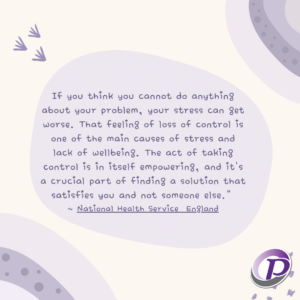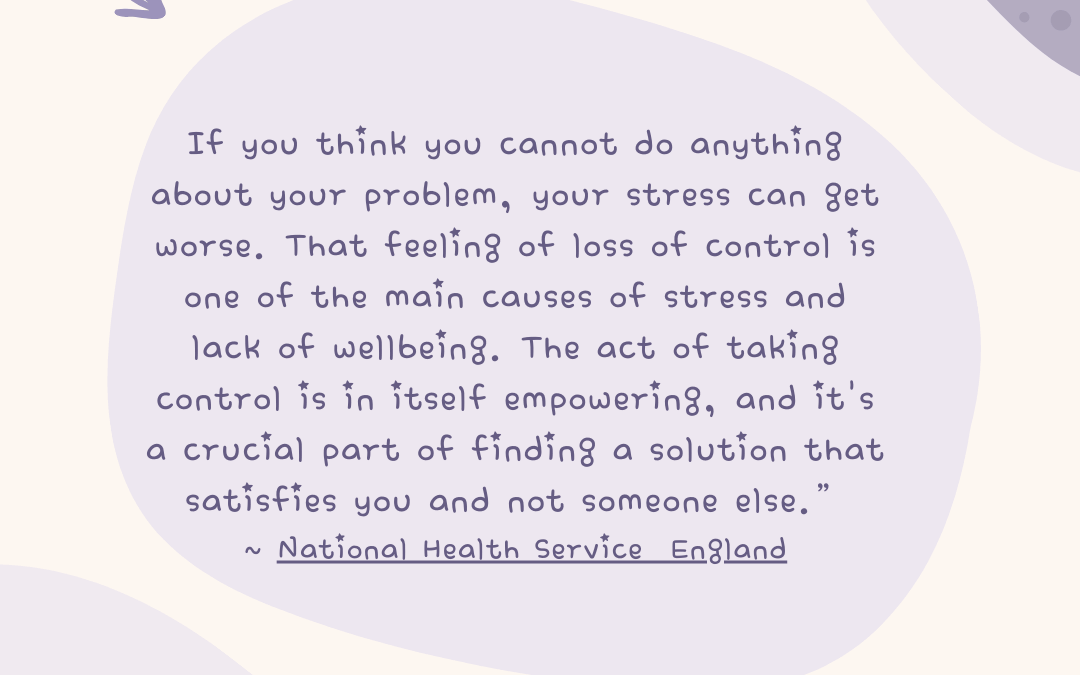
2 min readTake Control
by Guy Gage | March 10, 2024 | Business, Leadership, Personal Management

The Reality
All professionals encounter stress when life is the busiest and most compressed. As those seasons progress, it is easy to feel less and less in control. A large workload, uncooperative clients, under-performing staff, and looming due dates only exasperate the situation. By the time the season is over, major recovery is needed. Mostly because we don’t take control.
The Effects
Feeling out of control generates a stress response. Cortisol hypes you up and doesn’t let up. Extended cortisol release without relief causes a host of physical and mental ailments. But when we take control, cortisol reduces because we aren’t in a fight or flight mode, so we feel better, act with more confidence and exercise better judgment.
The Strategies
This is another reason to keep your act together throughout your season. That’s why we make every effort to in optimal control, in the midst of so many “uncontrollables.” These strategies you already know about and use. Maybe you can assess how well you are using them.
- Let Go. Feeling like you have to be in control is a cognitive distortion. Total control is an illusion that you will never attain. Give yourself permission to function in situations in which you have less control.
- Get organized. When you make the effort to sort your week and your work, it relieves feeling out of control. It is stress-inducing to enter into situations feeling disorganized. Take the time to regularly organize and reorganize as needed.
- Plan and prepare. As much as you can, be diligent to get the information and skills you need to do the work. You frustrate yourself when you expect to get your work done without having the necessary resources. Go the extra mile to get what you need, for your sake.
- Assess priorities. Things change. What you expected to accomplish this week will change a time or two. As Stephen Covey said, “The main thing is to keep the main thing the main thing.”
- Remaining flexible with your time and priorities is paramount. Relax and make the necessary adjustments that will keep you focused on the right things right now. Mental flexibility is fairly mandatory in this profession.
- Being clear with others is helpful because you aren’t pressured by their unspoken expectations and assumptions. Misunderstandings are very stressful to those who are conscientious about their work. Make an effort to consistently communicate.
Your Commitment
As I already noted, you use of all these strategies to a degree. They are proven practices that will help you gain a sense of control over your life and your work. But which one should you pay more attention to that may be lagging? You know what you need to get a better grip. Take a moment and commit to doing one thing that will help you take control. Now. For your sake.
Read Related Blogs:
Empowering Your CPA Team: Ditch the Whip for True Ownership
Picture this: It's tax season crunch time. Your senior associate, Sarah, spots a subtle mismatch in a client's depreciation schedule that could trigger an audit flag. In the old days, she'd flag it for review and wait for your sign-off - classic accountability mode,...
It’s Not Fragility. It’s a Skills Gap – And You Can Fix It
Young professionals are entering firms in a markedly different mental and emotional state than previous generations. They’ve grown up amid economic instability, political and social division, and ongoing global conflict. At the same time, many were raised by highly...
Scale Your Expectations to Match the Season, Not the Ideal
Every season is unique and asks something different of you. Some chapters feel spacious and steady; others tighten the margins and demand more time, focus, or energy bandwidth than you’d prefer. When life intensifies, the instinct is often to cling to your ideal...



